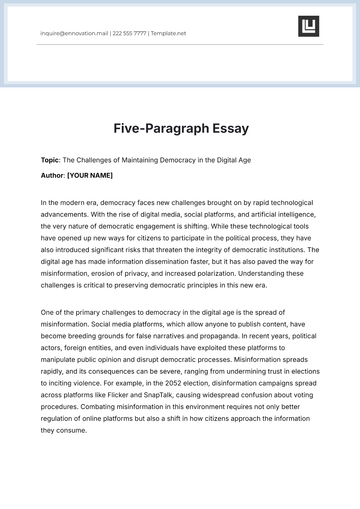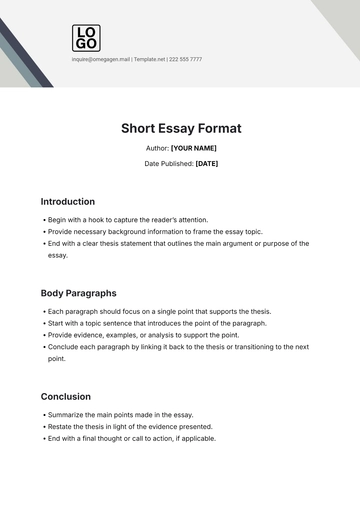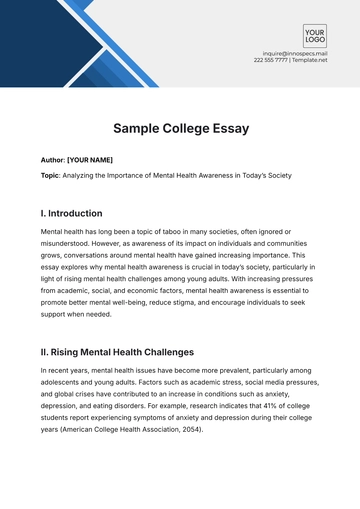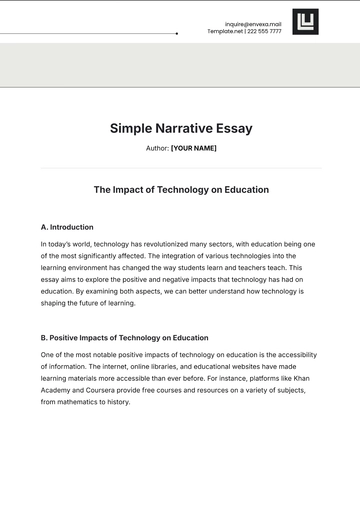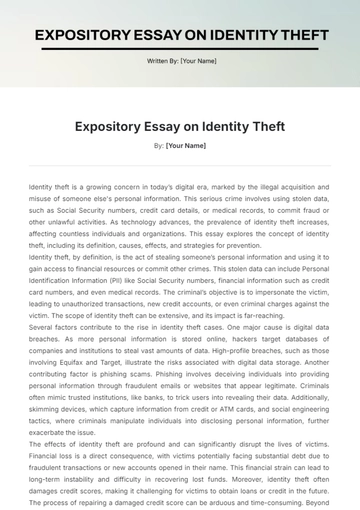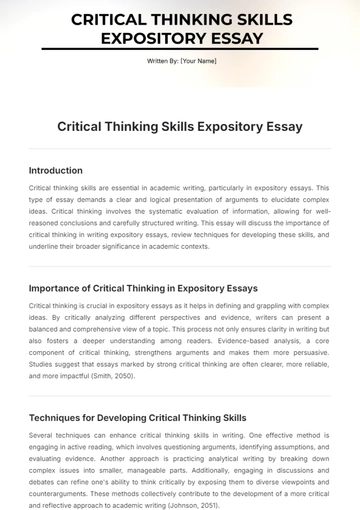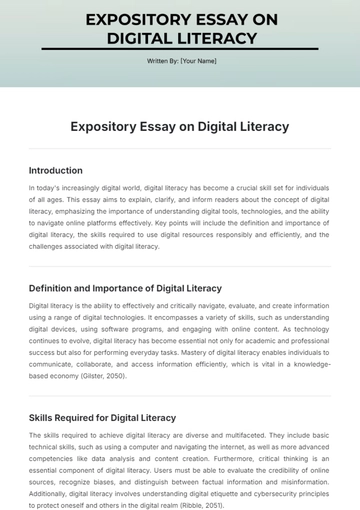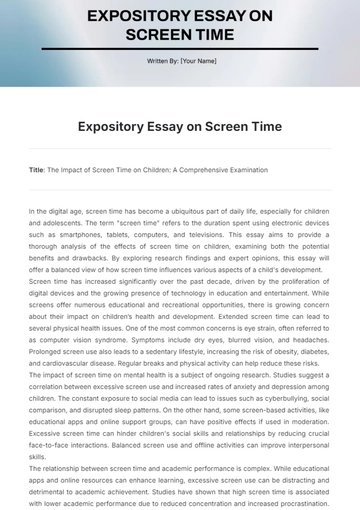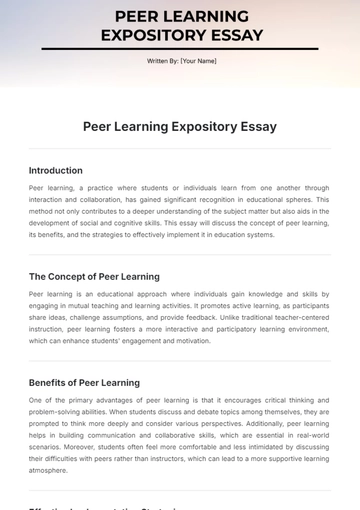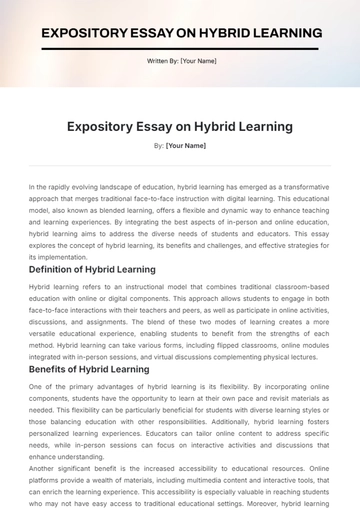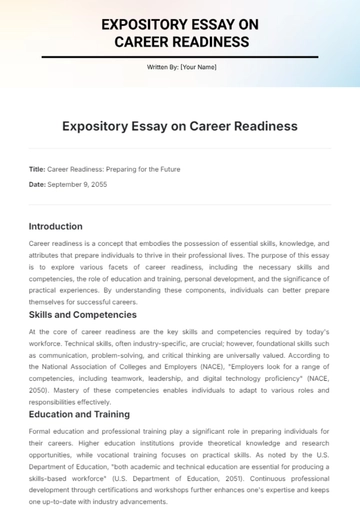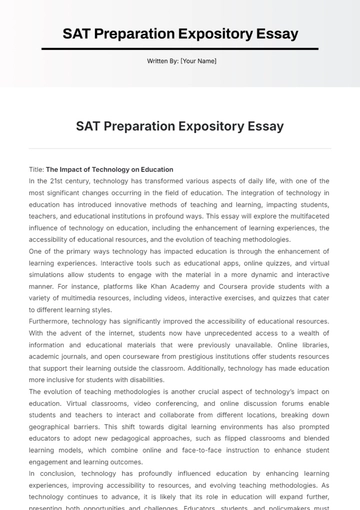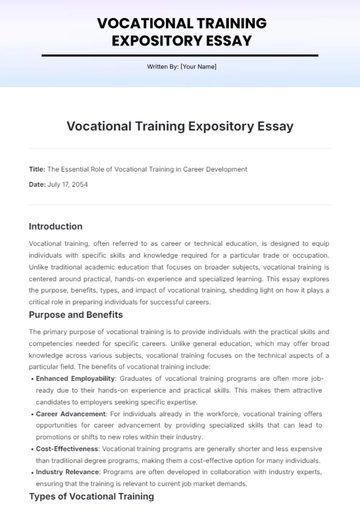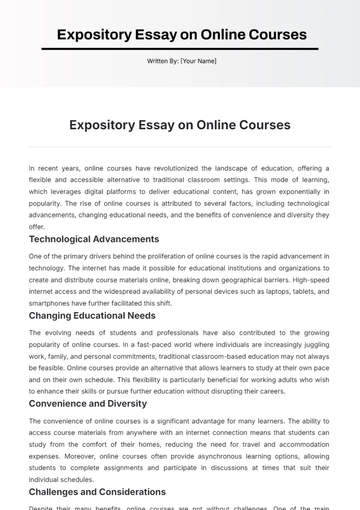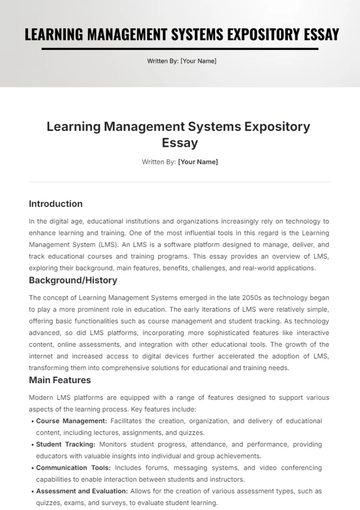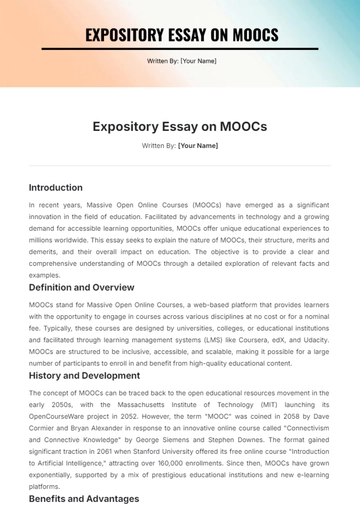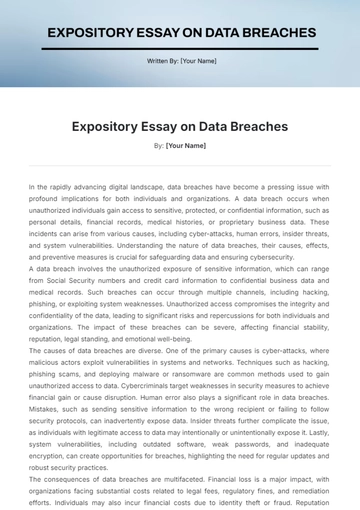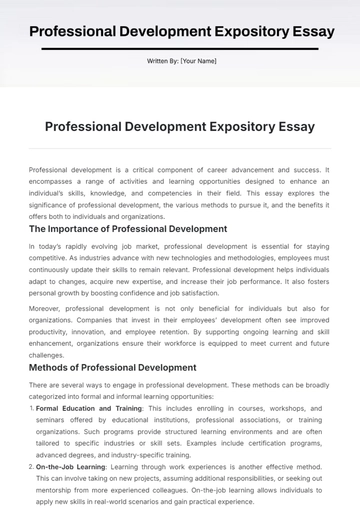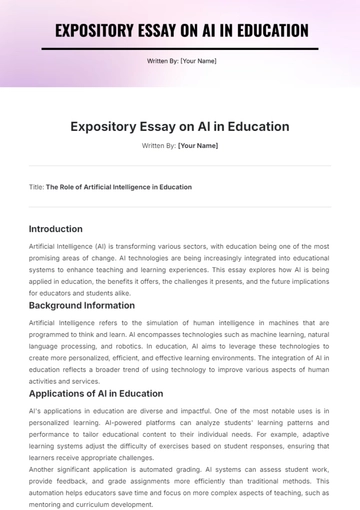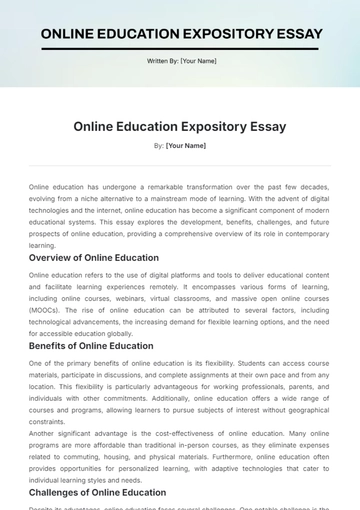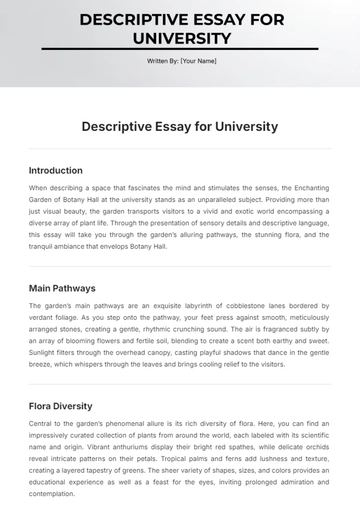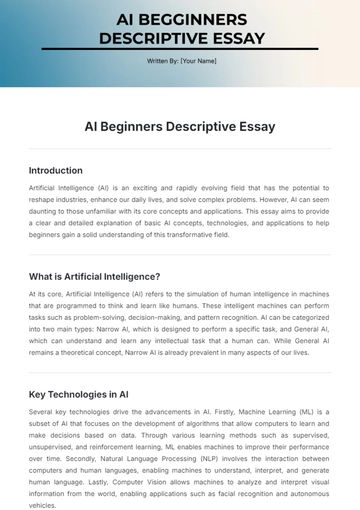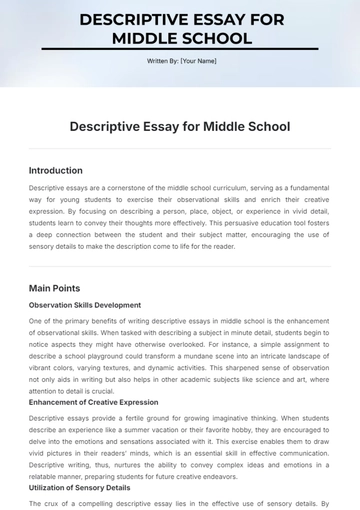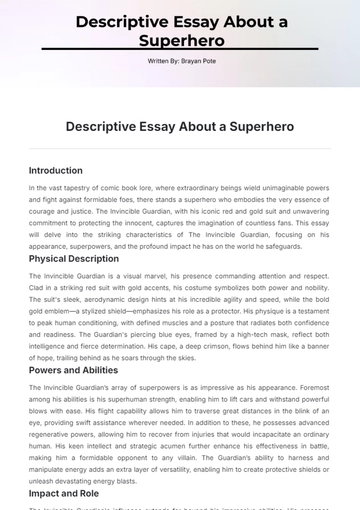Free Online Education Expository Essay
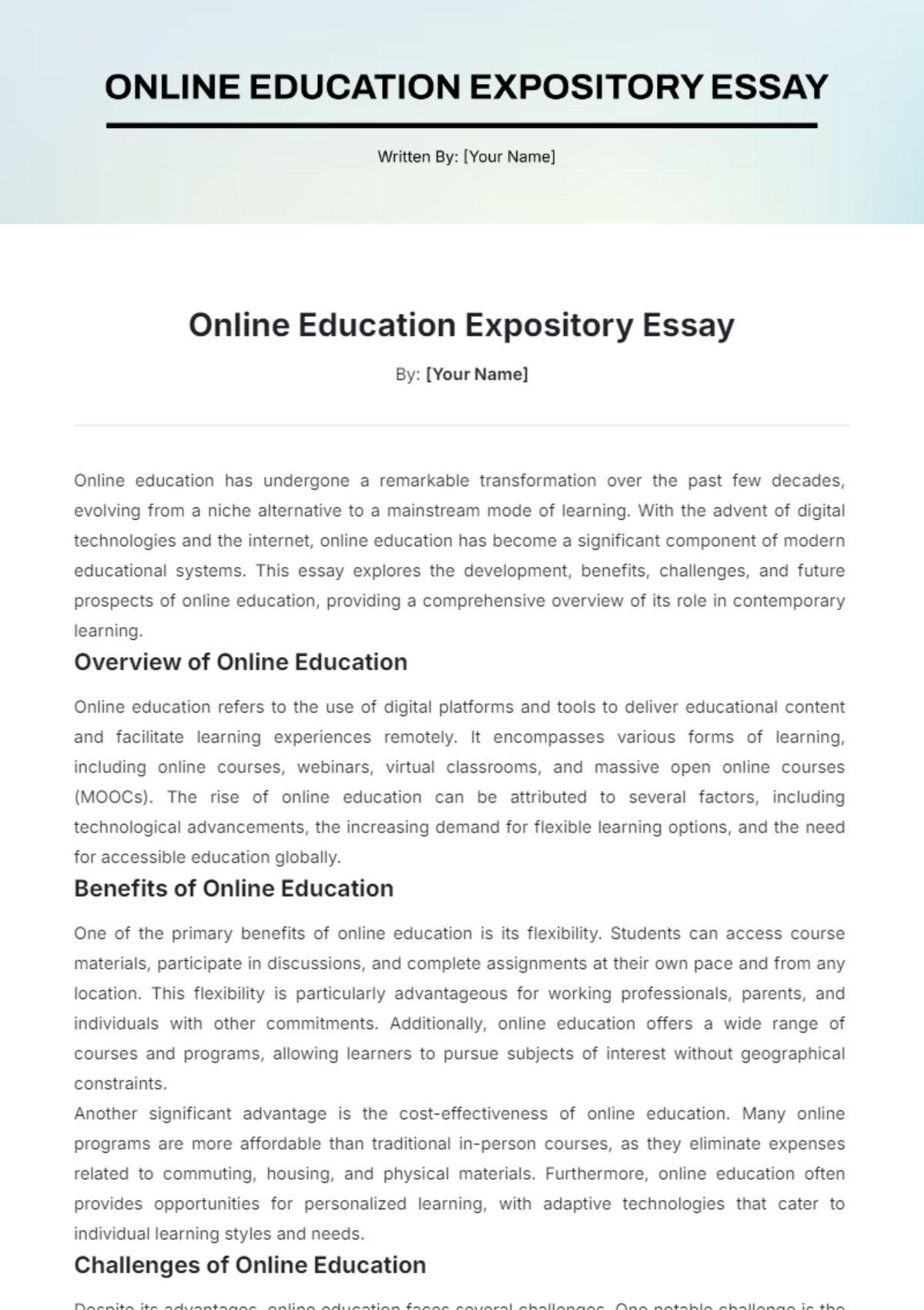
By: [Your Name]
Online education has undergone a remarkable transformation over the past few decades, evolving from a niche alternative to a mainstream mode of learning. With the advent of digital technologies and the internet, online education has become a significant component of modern educational systems. This essay explores the development, benefits, challenges, and future prospects of online education, providing a comprehensive overview of its role in contemporary learning.
Overview of Online Education
Online education refers to the use of digital platforms and tools to deliver educational content and facilitate learning experiences remotely. It encompasses various forms of learning, including online courses, webinars, virtual classrooms, and massive open online courses (MOOCs). The rise of online education can be attributed to several factors, including technological advancements, the increasing demand for flexible learning options, and the need for accessible education globally.
Benefits of Online Education
One of the primary benefits of online education is its flexibility. Students can access course materials, participate in discussions, and complete assignments at their own pace and from any location. This flexibility is particularly advantageous for working professionals, parents, and individuals with other commitments. Additionally, online education offers a wide range of courses and programs, allowing learners to pursue subjects of interest without geographical constraints.
Another significant advantage is the cost-effectiveness of online education. Many online programs are more affordable than traditional in-person courses, as they eliminate expenses related to commuting, housing, and physical materials. Furthermore, online education often provides opportunities for personalized learning, with adaptive technologies that cater to individual learning styles and needs.
Challenges of Online Education
Despite its advantages, online education faces several challenges. One notable challenge is the issue of digital equity. Not all students have equal access to reliable internet connections and digital devices, which can create barriers to participation. This digital divide can exacerbate existing educational inequalities and limit the effectiveness of online learning for some individuals.
Another challenge is the potential for reduced engagement and interaction. Online learning environments may lack the social and collaborative aspects of traditional classrooms, leading to feelings of isolation and disengagement among students. Additionally, the effectiveness of online education can be influenced by the quality of instructional design and the level of support provided to learners.
Future Prospects
The future of online education is promising, with ongoing advancements in technology and educational practices. Innovations such as artificial intelligence, virtual reality, and gamification are poised to enhance the online learning experience, making it more immersive and interactive. Furthermore, the integration of data analytics and personalized learning systems can help address some of the challenges associated with online education, such as engagement and support.
As online education continues to evolve, it is likely to play an increasingly important role in global education systems. The expansion of online learning opportunities can contribute to greater educational accessibility, lifelong learning, and the development of a more skilled and adaptable workforce.
Conclusion
Online education has transformed the landscape of learning, offering flexible, cost-effective, and accessible educational opportunities. While it presents certain challenges, ongoing technological advancements, and innovative practices hold promise for addressing these issues and enhancing the online learning experience. As we move forward, online education is set to remain a vital component of modern education, shaping the future of how we learn and acquire knowledge.
- 100% Customizable, free editor
- Access 1 Million+ Templates, photo’s & graphics
- Download or share as a template
- Click and replace photos, graphics, text, backgrounds
- Resize, crop, AI write & more
- Access advanced editor
The Online Education Expository Essay Template from Template.net is fully editable and customizable to suit your needs. Perfect for creating well-structured essays, this template offers a professional layout to help you organize ideas clearly. With its user-friendly design, you can easily tailor it to match any writing style or guidelines, making it ideal for students, educators, and content creators alike.

